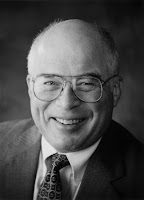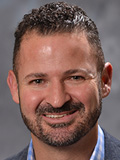Learn how to successfully navigate your career path in this upcoming mixer hosted by the AOCS Young Professional Common Interest Group.
Gain valuable insights about challenges that may arise while navigating your career path and resources to use that can help with this process. Hear personal experiences from seven well-known experts and young researchers from academia, government and industry.
When: Thursday, October 28, 2021, 11 a.m. CDT (Chicago, USA; UTC-5)
Register for free.
Panelists
Academia

Philip D. Bates, Washington State University, USA
Dr. Philip D. Bates’ laboratory focuses on the biochemistry and molecular biology of plant lipid metabolism leading to the biosynthesis of essential membrane lipids and oils. The long-term goal is to understand the control of lipid metabolic flux that can be used to engineer increased total oil and produce designer oil fatty acid compositions. His interest in plant biochemistry started as an undergraduate at the University of California Davis (2002), and his love of plant lipid metabolism began during graduate school in the lab of John Ohlrogge at Michigan State University (2008). He did postdoctoral research with John Browse at Washington State University. In 2013, he started a research group as an assistant professor at the University of Southern Mississippi. In 2014, he received the Paul K. Stumpf Award for Exceptional Early-Career Plant Lipid Scientist from the International Symposium on Plant Lipids, and in 2016 he received the Arthur C. Neish Young Investigator Award from the Phytochemical Society of North America. In 2018, Dr. Bates took an accelerated assistant professor position at WSU, moved his lab (including the people 2,400 miles), and was promoted to associate professor with tenure in 2020.

Ed Cahoon, University of Nebraska-Lincoln, USA
Dr. Ed Cahoon is the George Holmes University Distinguished Professor of Biochemistry and Director of the Center for Plant Science Innovation at the University of Nebraska-Lincoln (UNL). He has approximately 30 years of experience in plant biotechnology. He has used biotechnological tools for improving soybean oil composition as a scientist with DuPont Crop Genetics and USDA-ARS, before joining the UNL faculty in 2008. Dr. Cahoon has combined biochemistry and functional genomics to uncover metabolic pathways for high-value fatty acids, antioxidants, and carotenoids and has transferred these pathways to soybean to enhance oil value for emerging markets such as aquaculture feedstocks. He has more than 150 publications and 35 US patents in plant biotechnology and was a 2017 recipient of an honorary doctorate in plant breeding from the Swedish University of Agricultural Sciences. Dr. Cahoon received his B.S. in biochemistry from Virginia Tech, M.S. in plant physiology from Cornell University and Ph.D. in plant biochemistry from Michigan State University.

Matthew J. Fhaner, University of Michigan-Flint, USA
Dr. Matthew J. Fhaner is the chair of the Department of Natural Sciences at the University of Michigan – Flint (UM-Flint), where he has been a faculty member for 7 years. He is an associate professor of analytical chemistry. He teaches both lecture and laboratory classes in general chemistry and analytical chemistry focusing on quantitative and instrumental analyses. Dr. Fhaner’s research program focuses on identifying applications of electrochemical methods to the study of natural antioxidants and edible oil.
Government

W. Craig Byrdwell, USDA-ARS, USA
Dr. W. Craig Byrdwell is a research chemist at the Methods and Application of Food Composition Laboratory, part of the Agricultural Research Service, the research branch of the U.S. Department of Agriculture (USDA). Dr. Byrdwell wrote his dissertation on identification of the “Unknown Phospholipid” in the human eye lens and quantification of fluorophores in normal and cataractous lenses. Dr. Byrdwell took a position at the USDA’s National Center for Agricultural Utilization Research (ARS) and published the first report of analysis of triacylglycerols (TAGs) using HPLC with APCI-MS. Dr. Byrdwell took a position where he first and then routinely employed dual parallel mass spectrometers, using both APCI-MS and ESI-MS. He re-joined ARS in 2005 and has been analyzing fat-soluble vitamins and TAGs, combining three or four mass spectrometers employing complementary ionization methods (APCI-MS, APPI-MS and ESI-MS) coupled to one, two or three liquid chromatographs in multi-dimensional LCx/MSy techniques. Dr. Byrdwell has published more than 65 peer-reviewed articles, 10 book chapters and been editor and/or co-editor of three AOCS Press books. Dr. Byrdwell received the 2012 American Oil Chemists’ Society Analytical Division Herbert J. Dutton Award, presented the 2013 Society of Chemical Industry Julius Lewkowitsch Award Lecture and was awarded Fellow of the American Oil Chemists’ Society in 2019.

Tom McKeon, Formerly USDA, USA
Dr. Tom McKeon joined the USDA, ARS, in 1981 as a research chemist in the Postharvest Physiology and Chemistry Research Unit. Initially, his research involved fruit development and plant senescence. Later, his research turned to fatty acid and triacylglycerol biosynthesis in the castor plant. Much of his career was spent as a project leader, occasionally serving as an acting research leader and a brief stint as an acting assistant area director. Dr. McKeon retired in 2019. When Dr. McKeon started the research project on castor oil biosynthesis, he joined AOCS and the Biotechnology (BIO) Division. He has been involved in the BIO Division and AOCS since 1997.
Industry

Sidd Purkayastha, PureCircle/Ingredion, USA
Dr. Sidd Purkayastha is head of Global Scientific and Regulatory Affairs of PureCircle/Ingredion and manages the PureCircle Science, Safety and Regulatory programs to drive the introduction of stevia in the food and beverage markets globally. Dr. Purkayastha is a research fellow in Ingredion R&D. With more than 30 years of experience in developing sweetener and carbohydrate technology for the reduced calorie and health and wellness area of food applications, Dr. Purkayastha joined PureCircle in 2009 to start the innovation and technical development and support team. He established PureCircle technical centers in the US, Europe and China; spearheaded business development in south-southeast Asia; and gained regulatory approval of new stevia sweeteners and flavors around the world. He works closely with major food companies and regulatory authorities to address technical and regulatory issues on stevia. Dr. Purkayastha authored more than 10 peer-reviewed research articles and numerous publications in trade journals on applications, safety and metabolism of steviol glycosides. A large number of U.S. and international patents on stevia technology have been awarded to Dr. Purkayastha. He graduated with a B.Tech from the I.I.T, Kharagpur (India), M.S. and M.B.A. from the University of Illinois and Ph.D. from the University of Massachusetts at Amherst.

Dr. Sarah Willett is currently an RD&A scientist on the Process Innovation Team at Kerry in Beloit, WI. Her role focuses on improving current processes and investigating novel processes for Kerry’s Taste Portfolio, with specific research focus in the areas of lipid systems and mimetics, enzyme processes and encapsulation of flavors and bioactives. Previously, she completed her Ph.D. in food science at the University of Georgia in 2019 under the direction of Dr. Casimir C. Akoh. During her Ph.D., her research focused on production of structured lipids containing menhaden fish oil, oleogels and the potential for addition of these health beneficial lipids into food products. Her undergraduate studies in food science were completed in 2016 at the University of Wisconsin-Stout. Dr. Willett has been a member of AOCS since 2016 and is currently serving as the Young Professional CIG co-chair and Biotechnology Division newsletter editor.

































